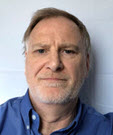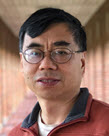Vacuum Theory and Technology
These two 90-min session classes will include Basic and Advanced Vacuum Technology – Vacuum concepts covering rough, high and ultrahigh vacuum pumps, advanced vacuum practices.
Ultra-High Vacuum Seminar: Part 1 of 2 Session Series
John Screech, Senior Applications Engineer, Agilent Technologies, Vacuum Products Division
This class provides the basics for understanding the nature and of ultra-high vacuum (UHV) which is a key enabling condition for many types of scientific inquiry and experimentation. Topics in session one will include an introduction to high vacuum and ultra-high vacuum, including the relationship between Pumping Speed, Throughput, Gas Load and Conductance. A description of the working principles of vacuum pumps and gauges used in rough, high and ultra-high vacuum will also be discussed. The curriculum for this 90 minute class is excerpted from Agilent’s one-day UHV Seminar and is intended to provide an introduction to ultra-high vacuum systems and practice for scientists, engineers and technicians. Attendees will receive a digital copy of the slide deck as a PDF file.
Ultra-High Vacuum Seminar: Part 2 of 2 Session Series
John Screech, Senior Applications Engineer, Agilent Technologies, Vacuum Products Division
This class provides further details into the challenges in achieving ultra-high vacuum (UHV) pressure. Session two will delve into the inter-relationship of pumping technologies used from primary vacuum to UHV, system troubleshooting techniques, and material selection. The curriculum for session two of this 90 minute class is excerpted from Agilent’s one-day UHV Seminar and is intended to provide an introduction to ultra-high vacuum systems and practice for scientists, engineers and technicians. Attendees can download digital copy of the slide deck as a PDF file (please see the attachments listed below).
 Class Instructor : John Screech, Sr Applications Engineer, Agilent Technologies (Vacuum Products)
Class Instructor : John Screech, Sr Applications Engineer, Agilent Technologies (Vacuum Products)
John graduated in 1986 with a Bachelor’s degree in Physics and has worked in analytical instrumentation ever since. His career has spanned general Mass Spectrometry, Vacuum System development, and Contraband Detection. John joined Agilent in 2011 and currently leads Training and Education Programs for the Vacuum Products division. John also assists Agilent’s sales force and end-users with pre- and post-Sales Applications Support. He is based near Toronto, Canada.
Ion Beam Analysis
This 90-min class will cover fundamentals of ion-solid interactions, particularly relevant to ion beam analysis (IBA) such as kinematics, cross-sections, and ion stopping. Then focus on Rutherford Backscattering Spectrometry (RBS). Finally other common IBA techniques including Elastic Recoil Detection (ERD), Nuclear Reaction Analysis (NRA), Particular Induced X-ray Emission (PIXE) and Ion Channeling will also be surveyed.
 Class Instructor: Yongqiang Wang, Director of the Ion Beam Materials Laboratory at Los Alamos National Laboratory.
Class Instructor: Yongqiang Wang, Director of the Ion Beam Materials Laboratory at Los Alamos National Laboratory.
Dr. Wang has over 30 years research experience in the field of ion beam analysis, ion beam modification, and ion irradiation damage studies of materials. He has co-authored two ion beam analysis books: Handbook of Modern Ion Beam Materials Analysis (MRS Publisher 2009) and Ion Beam Analysis: Fundamentals and Applications (CRC Press, 2015). He currently serves as Editor of Nuclear Instruments and Methods in Physics Research: Beam Interactions with Materials and Atoms (NIM B); is an elected member of International Advisory Committee on Ion Beam Analysis. He co-chaired 21th international conference on Ion beam Analysis in 2013, the 21st International Conference on Ion Beam Modification of Materials (IBMM) in 2018, and has been serving as a Co-organizer for Biennial International Conference Series on Application of Accelerators in Research and Industry (CAARI) since 2012.
Workshop files for download by participants:
